Introduction
Can Guinea Pigs Get Wet: Guinea pigs, those charming and endearing little rodents that have become beloved pets in countless households around the world, often spark curiosity and concern among their owners when it comes to their well-being. One common question that frequently arises. The seemingly simple query is more nuanced than one might expect, and it delves into the intricacies of guinea pig care and their unique physiological traits. Guinea pigs pellets, known scientifically as Cavia porcellus, originate from the Andes Mountains in South America, where they adapted to a temperate climate characterized by cool temperatures and relatively low humidity. Their evolution has not equipped them with the same waterproofing abilities that some other animals possess.
Unlike ducks or otters, which have specialized features to keep them dry while swimming, guinea pigs lack the natural defenses to handle wet conditions. As a result, they are exceptionally sensitive to moisture and changes in temperature. In the wild, guinea pigs find shelter in burrows and caves, avoiding rain and excess moisture at all costs. Their soft and dense fur, which ranges in color and texture, acts as a vital insulation layer to keep them warm and dry. This fur, however, can quickly become a liability when exposed to water. It loses its insulating properties when wet, making the guinea pig vulnerable to hypothermia, a potentially life-threatening condition.
So, can guinea pigs get wet that it’s best to keep them dry whenever possible. While they may tolerate a mild sprinkle or a brief encounter with moisture, exposing guinea pigs to prolonged or heavy rain, baths, or even damp bedding can lead to severe health issues. The reasons why guinea pigs should avoid getting wet, the potential consequences of moisture exposure, and how to properly care for these small, sensitive creatures to ensure their well-being in various conditions. Understanding the intricacies of guinea pig care, particularly in relation to moisture, is paramount for responsible pet ownership and ensuring the happiness and health of these adorable companions.
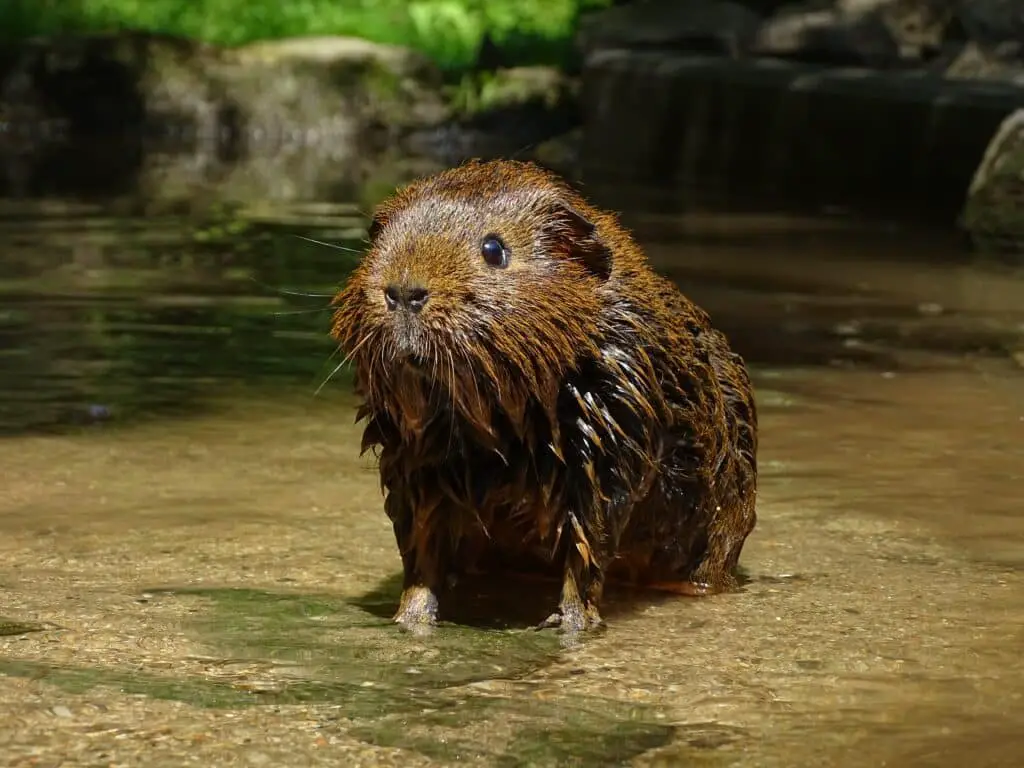
What happens if guinea pig gets wet?
They can suffer from hypothermia
Guinea pigs are originally from South America and prefer more moderate temperatures. Unfortunately, if they get wet for prolonged periods, and are cold, they can suffer from hypothermia, which can cause them to die.
Hypothermia: One of the most immediate and serious consequences of a guinea pig getting wet is the risk of hypothermia. Guinea pigs are native to the Andes Mountains, where they evolved to thrive in cool, dry climates. Their dense fur acts as insulation to keep them warm. When this fur becomes wet, it loses its insulating properties, and the guinea pig rapidly loses body heat. Hypothermia can set in quickly, leading to lethargy, shivering, and, if left untreated, potentially fatal consequences.
Respiratory Problems: Guinea pigs are also prone to respiratory issues. When they get wet, moisture can penetrate their delicate respiratory systems, leading to upper respiratory infections. These infections can manifest as sneezing, coughing, nasal discharge, and labored breathing. Prolonged exposure to damp conditions can exacerbate these problems, leading to more severe respiratory distress.
Skin Problems: Moisture can irritate a guinea pig’s skin, leading to dermatological issues. Damp fur can create an ideal environment for fungal and bacterial growth, causing skin infections or fungal overgrowths like ringworm. This can result in itching, redness, and discomfort for the guinea pig.
Stress and Discomfort: Guinea pigs are sensitive creatures, and being wet can be a stressful and uncomfortable experience for them. The distress caused by moisture exposure can lead to behavioral changes, including decreased activity, decreased appetite, and a general sense of unease.
Is it OK to put guinea pigs in water?
Guinea pigs make for the best pets, but do need to be handled with care. There are so many things cavies enjoy doing, but swimming isn’t one of them. It can make them sick, leave them feeling stressed and anxious, and afraid of you. The bottom line is if you want a pet that enjoys time in the water, get a fish!
Bathing Guinea Pigs: Guinea pigs do not require regular baths like some other animals, such as dogs. Their bodies are equipped to maintain their cleanliness, and bathing them too frequently can actually strip away essential oils from their skin and disrupt their natural balance. Guinea pigs are meticulous groomers, and they will often clean themselves by licking their fur. Unless they have a specific medical condition or are extremely dirty, bathing should be avoided.
Emergency Situations: There might be rare situations where you need to clean your guinea pig, such as if they’ve accidentally soiled themselves with something harmful or sticky. In such cases, it may be necessary to give them a bath, but it should be done with extreme caution and care.
Special Considerations: If you do need to bathe your guinea pig, there are some considerations to keep in mind. First, always use lukewarm water, as guinea pigs are sensitive to temperature changes. Ensure that the bathing area is quiet and calm to minimize stress. Use a mild, guinea pig-safe shampoo, or consult with a veterinarian for recommendations. Be gentle and thorough but avoid excessive rubbing or scrubbing.
Preventing Moisture Exposure: More than bathing is preventing your guinea pig from getting wet in the first place. Guinea pigs are highly sensitive to moisture, and prolonged exposure to wet conditions can lead to health problems, including hypothermia and skin issues. Always ensure their living environment is dry and free from drafts.
Can guinea pigs be out in the rain?
An appropriate time to bring your guinea pigs outdoors is when the temperature is mild (ideally around 17-20°C/62-68°F) and there are no elements getting in the way of your piggy’s fun day out. Never take your guinea pig out if it’s raining, snowing, or if it’s really windy!
Natural Habitat: Guinea pigs are native to the Andes Mountains of South America, where the climate is cool and temperate. They have evolved to thrive in conditions characterized by low humidity and minimal rainfall. Their fur, while dense and insulating, is not waterproof. In their natural habitat, guinea pigs avoid rain and seek shelter during wet weather.
Sensitivity to Moisture: Guinea pigs are highly sensitive to moisture, and their fur can quickly become soaked in the rain. When their fur gets wet, it loses its insulating properties, making them susceptible to rapid temperature changes and potential health issues like hypothermia.
Health Risks: Exposure to rain and wet conditions can pose significant health risks to guinea pigs. Hypothermia is a common concern, as their body temperature can drop rapidly when wet. Additionally, moisture can lead to skin problems, including fungal or bacterial infections, and respiratory issues if water gets into their ears or airways.
Supervised Outdoor Time: While it’s generally not advisable to allow guinea pigs to be out in the rain, some owners may choose to supervised outdoor time during dry, mild weather conditions. In such cases, it’s essential to ensure they have access to a covered and sheltered area where they can retreat if it starts raining unexpectedly.
Can I shower my guinea pig?
First of all, guinea pigs are great at taking care of their personal hygiene, so most of the time, they don’t really need to have a guinea pig bath. If you notice your precious pigs getting a bit smelly or soggy, however, you can give them a couple of baths a year without causing any problems.
Frequency: Guinea pigs are meticulous self-groomers and generally do not need regular baths. In fact, excessive bathing can strip their skin of natural oils and disrupt their delicate balance. Most guinea pigs only require bathing under specific circumstances, such as when they’ve soiled themselves with something harmful or sticky, or if by a veterinarian.
Water Temperature: When bathing your guinea pig, use lukewarm water, as they are sensitive to temperature changes. Test the water temperature with your wrist or a thermometer to ensure it’s not too hot or too cold.
Choosing the Right Shampoo: It’s crucial to use a mild and gentle shampoo specifically formulated for small animals or guinea pigs. Avoid using human or dog shampoos, as they may contain ingredients that are too harsh for their sensitive skin.
Bathing Environment: Create a calm and quiet bathing environment to reduce stress for your guinea pig. Use a shallow basin or sink for bathing, and place a non-slip mat or towel at the bottom to prevent slipping.
Do guinea pigs prefer dark or light?
They could be up at two in the morning running around with each other, or asleep at eight in the morning and up again an hour later. It’s safe to say that guinea pigs enjoy the dark at least, but we’d even go as far as to say they prefer the dark!
Natural Habitat: Guinea pigs are native to the Andes Mountains in South America, where they typically inhabit grassy areas and burrows. In their natural habitat, they experience a natural cycle of day and night. They are crepuscular animals, which means they are most active during the dawn and dusk hours when there is low to moderate light.
Light Sensitivity: Guinea pigs are sensitive to bright, direct light. Prolonged exposure to strong sunlight can lead to stress and discomfort. It’s with a sheltered area in their enclosure where they can retreat from direct sunlight if they are kept outdoors.
Indoor Enclosures: For guinea pigs kept indoors, it’s to maintain a consistent day-night cycle. This means providing a light source that simulates natural daylight and darkness. Avoid placing their cage in direct sunlight, which can lead to overheating, and instead, ensure they have access to ambient, indirect light.
Sleep Patterns: Guinea pigs are known to take short naps throughout the day, even in the presence of light. However, they may be more active during the dawn and dusk hours. It’s not uncommon for them to become more active and vocal when the lights are dimmer, signaling their readiness for playtime or interaction.
How do you dry a wet guinea pig?
Gently towel dry your guinea pig by carefully rubbing and soaking up the excess water with your towel. Place in a small box on a dry towel, to shake and recover! You can use a hair-dryer at this point although it would be better if he could dry off naturally.
Gather Your Supplies: Before you start the drying process, gather all the necessary supplies. You’ll need clean, dry towels, a soft blanket or towel for your guinea pig to sit on, and a warm, quiet, and draft-free room.
Handle with Care: Approach your wet guinea pig calmly and gently. Guinea pigs can become stressed when wet, so it’s essential to handle them with care to avoid further distress. Speak to them in a soothing voice to reassure them.
Remove Excess Moisture: Use a clean, dry towel to gently blot and soak up as much moisture from your guinea pig’s fur as possible. Be gentle and avoid rubbing, as this can irritate their skin. Pay special attention to the areas around their belly, legs, and feet.
Change the Towel: Guinea pigs should not sit directly on a wet or damp surface, as it can lead to further cooling and discomfort. Place a soft, dry blanket or towel on a flat surface and put your guinea pig on it. This will help keep them warm and comfortable while you continue the drying process.
Can guinea pigs eat carrots?
Guinea pigs don’t naturally eat fruit or root vegetables, but you can give them in small amounts as treats, such as small pieces of carrot or an apple quarter. Don’t give them citrus fruits, and remember that some plants are poisonous to guinea pigs.
Nutritional Benefits: Carrots are a nutritious to a guinea pig’s diet. They are a good source of essential vitamins and minerals, including vitamin A, which is crucial for guinea pigs’ overall health, particularly their eye health. Carrots also vitamin C, fiber, and other beneficial nutrients.
Moderation: While carrots offer nutritional benefits, they should be fed to guinea pigs in moderation. Carrots are relatively high in natural sugars, which can be detrimental to guinea pigs in excessive amounts. The sugar content can lead to weight gain and digestive issues, such as diarrhea.
Variety: Guinea pigs thrive on a varied diet. While carrots can be a part of their vegetable rotation, it’s to a wide range of fresh vegetables to ensure they receive a balanced diet. Leafy greens like kale, spinach, and romaine lettuce are excellent choices.
Preparation: When serving carrots to your guinea pig, make sure they are thoroughly washed to remove any pesticides or contaminants. You can feed them carrot slices or small pieces, but avoid giving them large chunks that might be difficult for them to chew.
Can guinea pigs eat apples?
Apples are good for guinea pigs. Apples are high in vitamin C, a critical vitamin for guinea pigs. Veterinarians recommend removing apple seeds prior to feeding due to choking hazard. A serving of one ½-inch cube twice per week is a reasonable amount.
Nutritional Benefits: Apples are a nutritious fruit that can offer guinea pigs some health benefits. They are a good source of vitamin C, which is essential for guinea pigs because they cannot produce this vitamin on their own. Apples also contain fiber, which aids in digestion.
Moderation is Key: While apples can be included in a guinea pig’s diet, it’s crucial to offer them in moderation. Apples are relatively high in natural sugars, which can lead to weight gain and digestive issues if consumed in excess. The sugar content can also contribute to dental problems.
Preparation: When feeding apples to your guinea pig, it’s essential to prepare them properly. Wash the apple thoroughly to remove any pesticides or contaminants. Remove the seeds and core, as they can be harmful to guinea pigs. Cut the apple into small, bite-sized pieces to make it easier for your pet to eat.
Variety: Guinea pigs thrive on a diverse diet. While apples can be a part of their fruit rotation, it’s crucial to a variety of fruits and vegetables to ensure they receive a balanced range of nutrients. Other safe fruits for guinea pigs include strawberries, blueberries, and small pieces of pear.
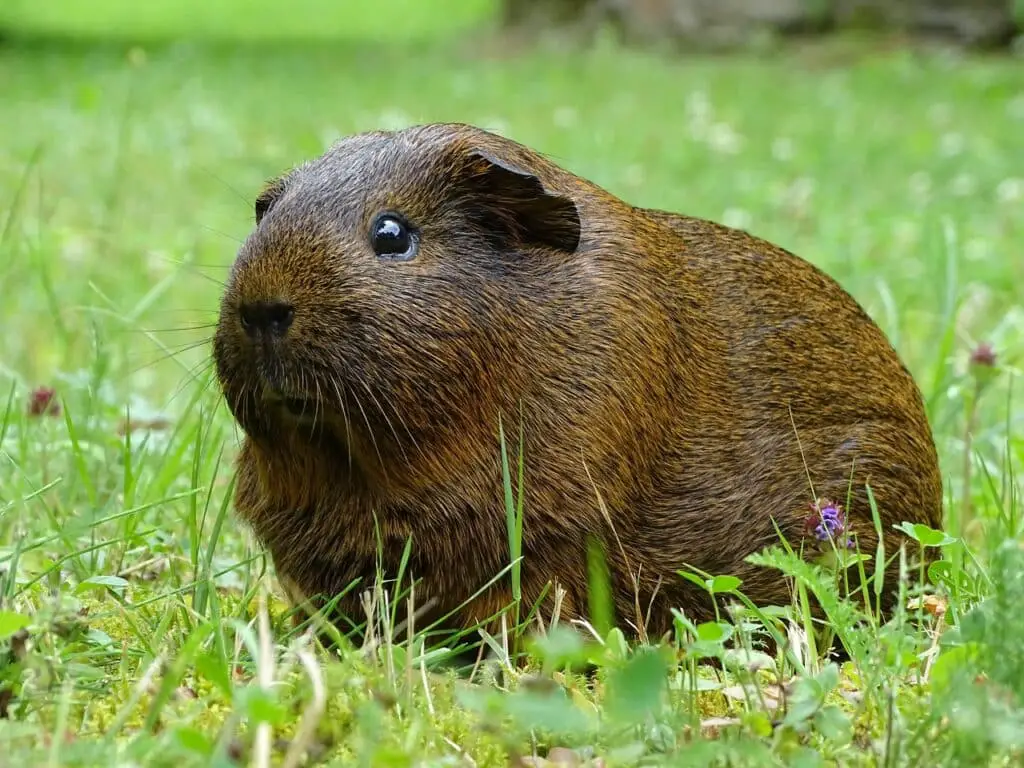
Conclusion
In guinea pigs, getting wet leads us into a profound understanding of their unique needs and vulnerabilities as pets. Guinea pigs, with their origins in the Andes Mountains of South America, have evolved to thrive in a specific environment that is markedly different from the typical human household. Their furry coats, while adorable and endearing, come with a critical caveat: they do not adequate protection against moisture. As a result, it is crucial for guinea pig owners to be aware of the potential dangers associated with wet conditions.
Throughout that guinea pigs are highly sensitive to moisture and are at risk of developing hypothermia when exposed to wet environments. Their fur loses its insulating properties when soaked, leaving them vulnerable to rapid temperature fluctuations and illness. Therefore, it is in the best interest of guinea pigs to keep them dry, particularly during rainy weather or when cleaning their cages. However, ensuring the well-being of these delightful rodents involves more than just preventing them from getting wet. Proper guinea pig care encompasses a range of responsibilities, including providing a balanced diet, a clean and comfortable living space, regular veterinary check-ups, and social interaction.
Understanding their unique dietary and social needs, as well as their susceptibility to certain health issues, such as scurvy and respiratory infections, is essential for responsible pet ownership. In keeping them dry, guinea pigs thrive in a nurturing environment where they feel safe and loved. Interacting with them, providing them with appropriate toys and stimulation, and maintaining a clean and spacious cage are all integral aspects of caring for these animals. Education and awareness of guinea pig care are essential for any prospective or current owner. Responsible pet owners who prioritize their guinea pigs’ welfare will undoubtedly enjoy the rewarding experience of nurturing these charming and affectionate companions.

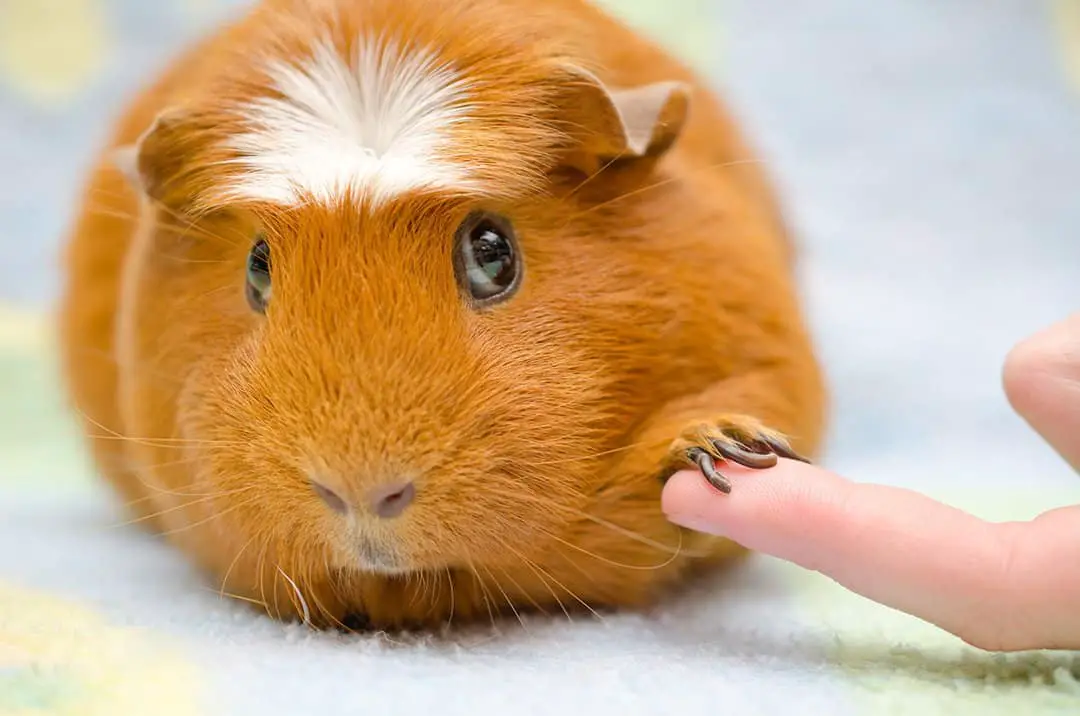
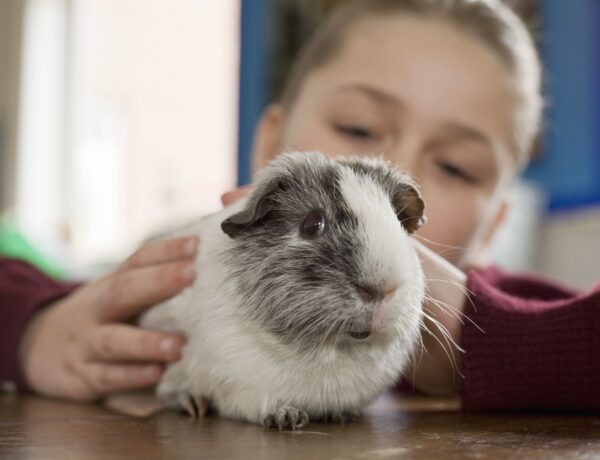
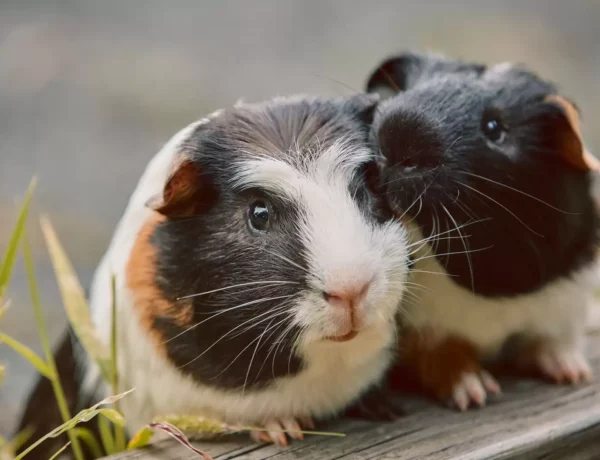
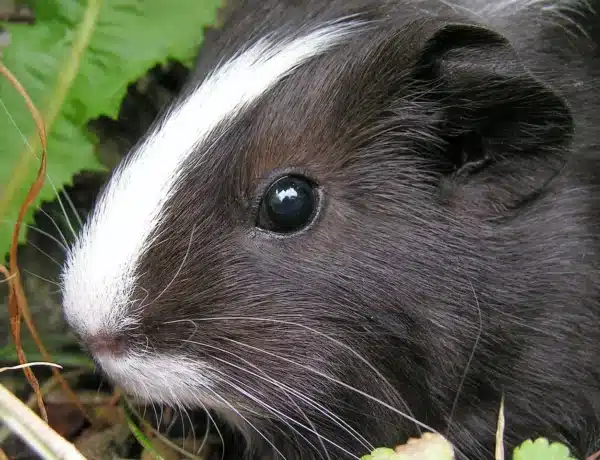
No Comments